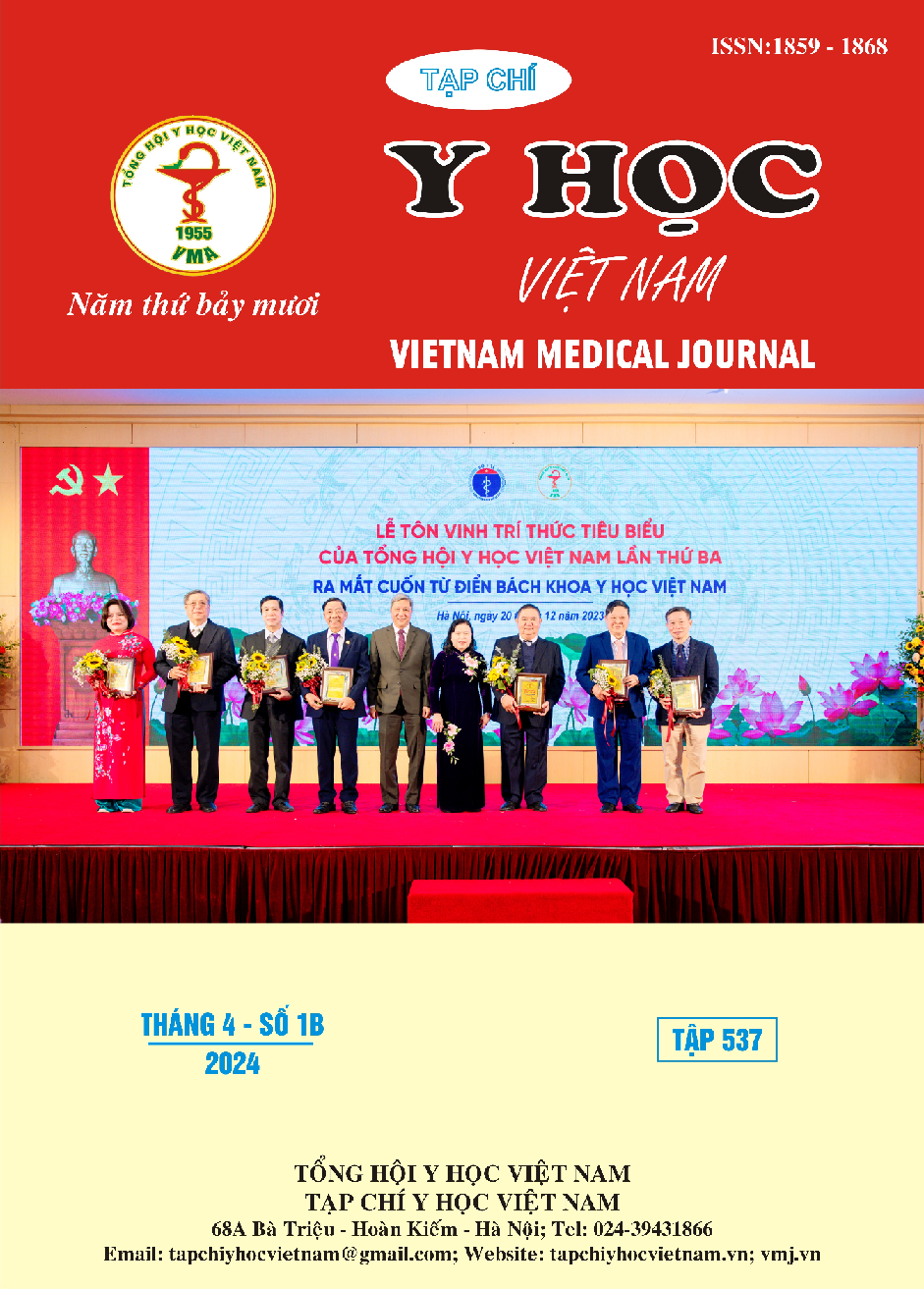ĐÁNH GIÁ HOẠT TÍNH SINH HỌC IN VITRO CỦA CAO HOA SAO NHÁI HOA VÀNG ĐỊNH HƯỚNG HỖ TRỢ ĐIỀU TRỊ GOUT (COSMOS SULPHUREUS CAV.)
Nội dung chính của bài viết
Tóm tắt
Đặt vấn đề: Gout là bệnh viêm khớp do tình trạng tăng acid uric máu gây ra. Điều trị gout hướng đến tác dụng ức chế enzym xanthin oxidase (XO), là enzym có liên quan mật thiết đến sự tạo thành acid uric. Trong nghiên cứu này, Sao nhái hoa vàng (SNHV) (Cosmos sulphureus Cav.) được chiết xuất và thử nghiệm hoạt tính kháng oxy hóa, kháng viêm và ức chế enzym xanthin oxidase in vitro của các cao chiết thu được. Đối tượng và phương pháp: Cao toàn phần hoa được chiết ngấm kiệt bằng ethanol 70%; tỉ lệ dược liệu : ethanol là 1:20 (kl/tt). Cao toàn phần được chiết lỏng - lỏng lần lượt với n-hexan, ethyl acetat, n-butanol; thu các phân đoạn tương ứng. Hàm lượng polyphenol và flavonoid toàn phần được xác định bằng đo quang phổ UV-Vis. Hoạt tính kháng oxy hóa in vitro được đánh giá thông qua khả năng làm mất màu của 2,2-diphenyl-1-picrylhydrrazyl (DPPH) và thử nghiệm mất màu ABTS (lần lượt ở bước sóng 515 nm và 734 nm). Hoạt tính kháng viêm được thực hiện trên mô hình ức chế proteinase. Hoạt tính ức chế enzym xanthin oxidase được xác định bằng đo quang phổ UV-Vis của acid uric tại bước sóng 295 nm. Kết quả: Cao toàn phần và các cao phân đoạn (ngoại trừ n-hexan) đều chứa polyphenol và flavonoid trong khoảng từ 88,23 - 719,49 mgGAE/g và 26,21 - 208,12 mgCE/g. Các cao chiết SNHV đều có tác động kháng oxy hóa trên cả hai mô hình DPPH và ABTS. Trong đó, cao ethyl acetat thể hiện hoạt tính tốt nhất với IC50 lần lượt là 7,10 và 6,30mg/ml. Các cao chiết cũng thể hiện khả năng kháng viêm in vitro trên mô hình proteinase, cao ethyl acetat có giá trị IC50 thấp nhất 92,60 mg/ml tương đương chứng dương aspirin (IC50=84,76 mg/ml). Các cao chiết SNHV có tác dụng ức chế enzym xanthin oxidase in vitro phụ thuộc nồng độ. Cao phân đoạn ethyl acetat ức chế XO tốt nhất (IC50 là 89,70 µg/ml) và được chứng minh có cơ chế ức chế dạng hỗn hợp. Kết luận: Các cao chiết từ hoa Sao nhái hoa vàng đều có các hoạt tính chống oxi hóa, bắt các gốc tự do DPPH và ABTS, kháng viêm và ức chế enzyme xanthine oxidase in vitro. Dược liệu hoa SNHV có tiềm năng trong điều chế các chế phẩm hỗ trợ điều trị bệnh gout.
Chi tiết bài viết
Từ khóa
Cosmos sulphureus Cav., kháng gout, kháng oxi hóa, DPPH, ABTS, kháng viêm.
Tài liệu tham khảo
2. Nguyễn Thị Ngọc Lan (2015), Bệnh học Cơ-Xương khớp nội khoa, NXB Y học, tr.187-189.
3. Oskoueian E., Abdullah N., Hendra R., and Karimi E. (2011). “Bioactive Compounds, Antioxidant, Xanthine Oxidase Inhibitory, Tyrosinase Inhibitory and Anti-Inflammatory Activities of Selected Agro-Industrial By-products.”, International Journal of Molecular Sciences, 12(12), pp. 8610 - 8625.
4. Sachidanandam K., Fagan S., and Ergul A. (2005), “Oxidative stress and cardiovascular disease: antioxidants and unresolved issues,” Cardiovascular Drug Reviews, 2(32), pp. 115 - 132.
5. ISO. Determination of substances characteristic of green and black tea‐Part 1: Content of total polyphenols in tea‐Colorimetric method using Folin‐Ciocalteu reagent. 2005;
6. Young A., Lowe G. (2018), “Carotenoids - Antioxidant Properties”, Antioxidants, 7(2), pp. 28.
7. Kishimoto S., Ohmiya A. (2009), “Studies on Carotenoids in the Petals of Compositae Plants”, Journal of the Japanese Society for Horticultural Science, 78(3), pp. 263 - 272.


